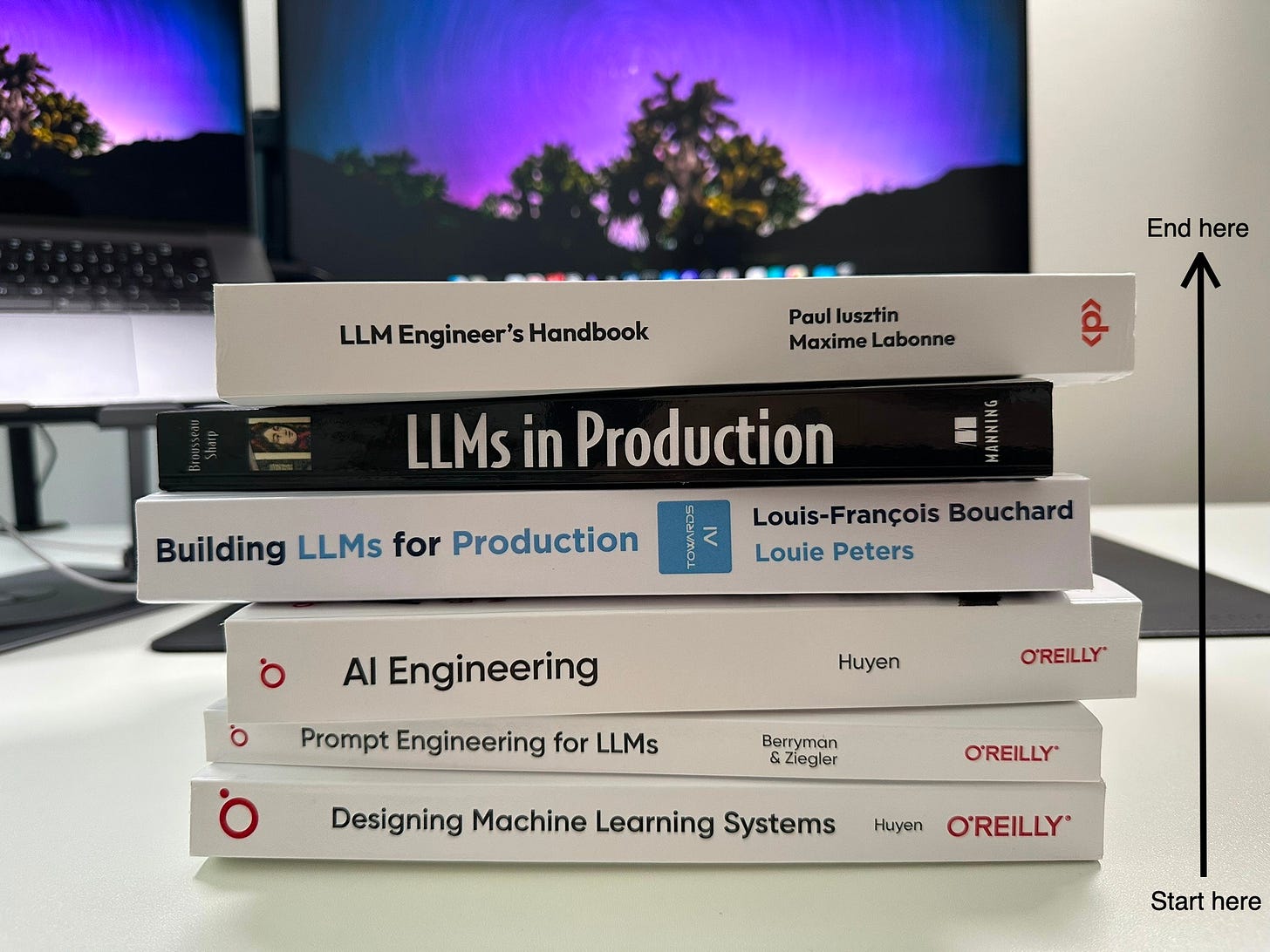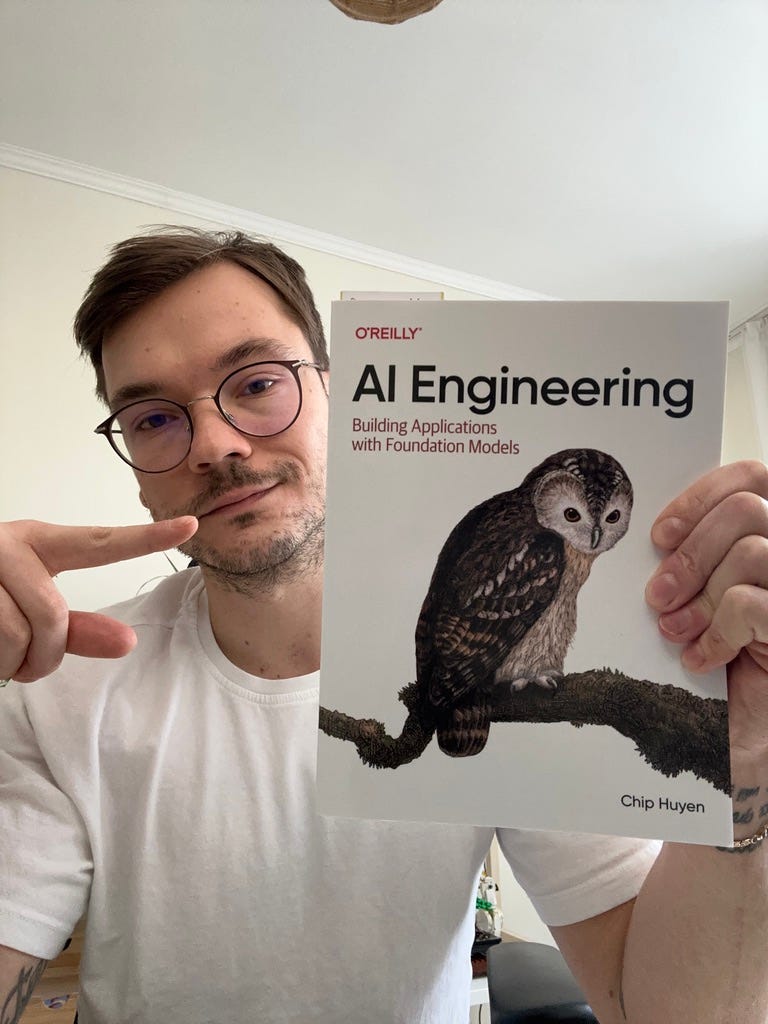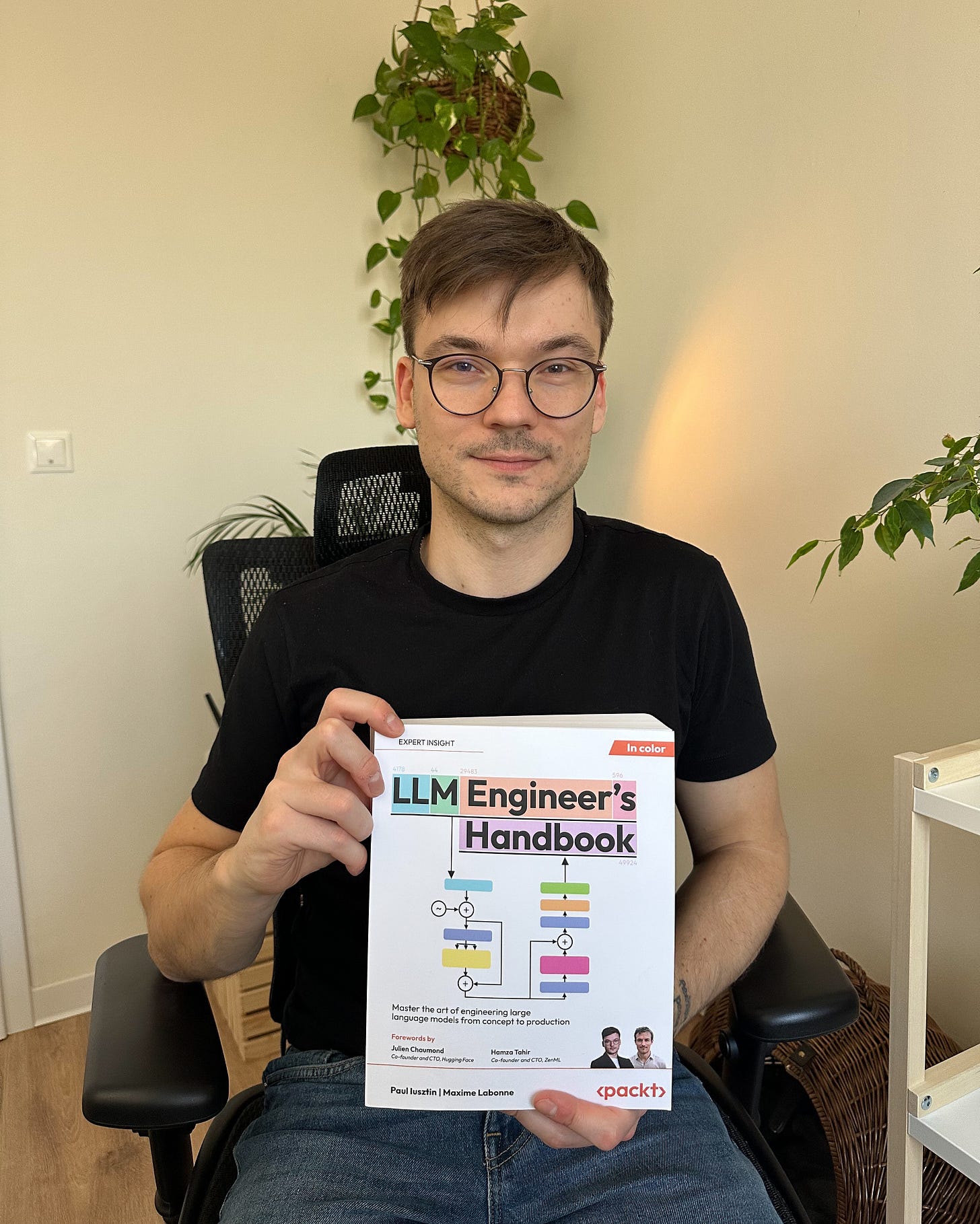In today’s article, I want you to present my top 5 favorite books (that I actually read) on getting into AI Engineering in 2025, plus a bonus at the end.
I will start with more general books on fundamentals and gradually add more niche content on AI Engineering as we progress through the list. Thus, if you are unsure of the order in which to read them. You can follow my list from 1 to 5, in that order.
1. Designing Machine Learning Systems
Designing Machine Learning Systems by
is the best book I have read so far, which is both beginner-friendly and provides a strong intuition into what an end-to-end ML system looks like.To me, it was an eye-opener. It made me realize that an ML system is more than just code. It provided me with a bird's-eye view of what it takes to build a production-grade ML system, touching aspects such as:
Architecting ML pipelines
Managing models and datasets
MLOps & Infrastructure
But wait, this book is about ML Systems, not AI Systems. Well… It doesn't matter. This book was written before the AI hype, when “ML” was the broad umbrella of the domain. Thus, most of the principles still apply, even if it doesn’t talk about LLMs.
2. Prompt Engineering for LLMs
Prompt Engineering for LLMs by John Berryman and Albert Ziegler (one of the core engineers who developed GitHub Copilot) is the best book on prompt engineering I have read so far. As I am obsessed with seeing the big picture and thinking in systems, I was fascinated by how they presented prompt engineering in this book.
They weren’t limited to concrete examples of how to write prompts for X, Y, Z, or stuck on well-known techniques such as thinking step-by-step or few-shot learning.
Instead, they presented how to effectively engineer your prompts by considering the context you add to the prompt as packets of knowledge and discussing how to manipulate it to make it flexible, scalable, and squeeze the most out of your models.
P.S. The book is written in such a funny way that it’s entertaining to read. 100% recommend it.
3. AI Engineering
The 3rd book on fundamentals that I recommend is AI Engineering by (yet again)
. Similar to her first book, this is a fantastic resource on providing a bird's-eye view of what AI Engineering is all about.In my opinion, it has one of the best and most clear explanations on:
AI vs. ML Engineering
RAG (from classic text search to more complex, semantic-based systems)
Building agentic systems (guardrails, gateways, caches, storages, memory… all of the good stuff interconnected into a single system)
LLMOps (Especially observability and user feedback)
This book is a no-brainer if you want to level up in AI Engineering.
4. Building LLMs for Production
Now, let’s get into more hands-on books that actually teach you how to build stuff!
An excellent entry-to-mid-level book is Building LLMs for Production by
and (founders of ). Throughout the book, they will walk you through how to implement all the core algorithms required to build LLM applications.Using LangChain and LlamaIndex, they show you how to implement all kinds of RAG techniques, starting from the vanilla architecture to more advanced techniques such as GraphRAG.
However, there is more to it than just RAG; they tackle everything, from prompt engineering and LLMs to agents, fine-tuning, and the core of deploying LLM apps.
Suppose you're overwhelmed by all the frameworks and tools out there. This book is a great way to start!
As I’ve partnered with the Towards AI team (on our future agents course and more), I can offer you on this one 15% off using my affiliate code Paul_15.
5. LLMs in Production
The last book on my list is LLMs in Production by Christopher Brousseau and Matthew Sharp.
This is a fantastic book focused entirely on shipping LLMs, well… to production! They do a great job of explaining:
How to optimize your LLMs using different tools such as ONNX, TensorRT and llama.cpp.
What’s data engineering for building an LLM app.
Training and serving LLMs at scale.
How to think about infrastructure when serving LLMs (disk, cold-starts, memory, etc.).
A fun capstone project where they deploy an LLM on a Raspberry Pi and hook it to a chat UI, having your own self-hosted LLM to chat with.
This is a highly underrated book!
Bonus. LLM Engineer’s Handbook
I couldn’t help but add my book to this list. After all, it’s my little baby. Hehe 🤭
Jokes aside, the LLM Engineer’s Handbook by Paul Iusztin and
would be on this list anyway.Because of my obsession with thinking in end-to-end systems and Maxime’s for fine-tuning, during the book, we walk you through building a single, but complex, LLM & RAG application, walking you through all the steps you will find in the industry:
Architecting the LLM & RAG system
Collecting data
Building fine-tuning and RAG pipelines, and datasets
Fine-tuning and evaluating LLMs
Deploying and scaling LLMs as REST APIs
LLMOps (orchestration, data versioning, CI/CD pipelines, Docker, monitoring, etc.)
Even if we don’t touch anything on agents, I still think this is a relevant book on teaching you how to think about when implementing end-to-end AI systems.
P.S. Maxime and I are considering a second edition of this book, where we aim to update it with the latest fine-tuning and agent techniques.
👉 The same fundamental principle: implementing an end-to-end project. But now with reasoning models and agents. Would that interest you?
Final Thoughts
These are my favorite books and recommendations to get into AI Engineering in 2025.
Let me know in the comments which one you read, plan to read, liked or disliked. Would love to hear your thoughts ✌️↓
Whenever you’re ready, there are 3 ways we can help you:
Perks: Exclusive discounts on our recommended learning resources
(books, live courses, self-paced courses and learning platforms).
The LLM Engineer’s Handbook: Our bestseller book on teaching you an end-to-end framework for building production-ready LLM and RAG applications, from data collection to deployment (get up to 20% off using our discount code).
Free open-source courses: Master production AI with our end-to-end open-source courses, which reflect real-world AI projects and cover everything from system architecture to data collection, training and deployment.
Images
If not otherwise stated, all images are created by the author.












Hey Paul, Are you considering writing more on agentic systems? From what I understand, your book primarily focuses on single-LLM applications. As the field shifts towards more collaborative agent architectures (https://blog.langchain.com/benchmarking-multi-agent-architectures/), are you planning a series or perhaps a book on multi-agent systems? We'd love to hear real-world insights and experiences on this evolving topic.
If there’s a book about it, chances are the information is stale.